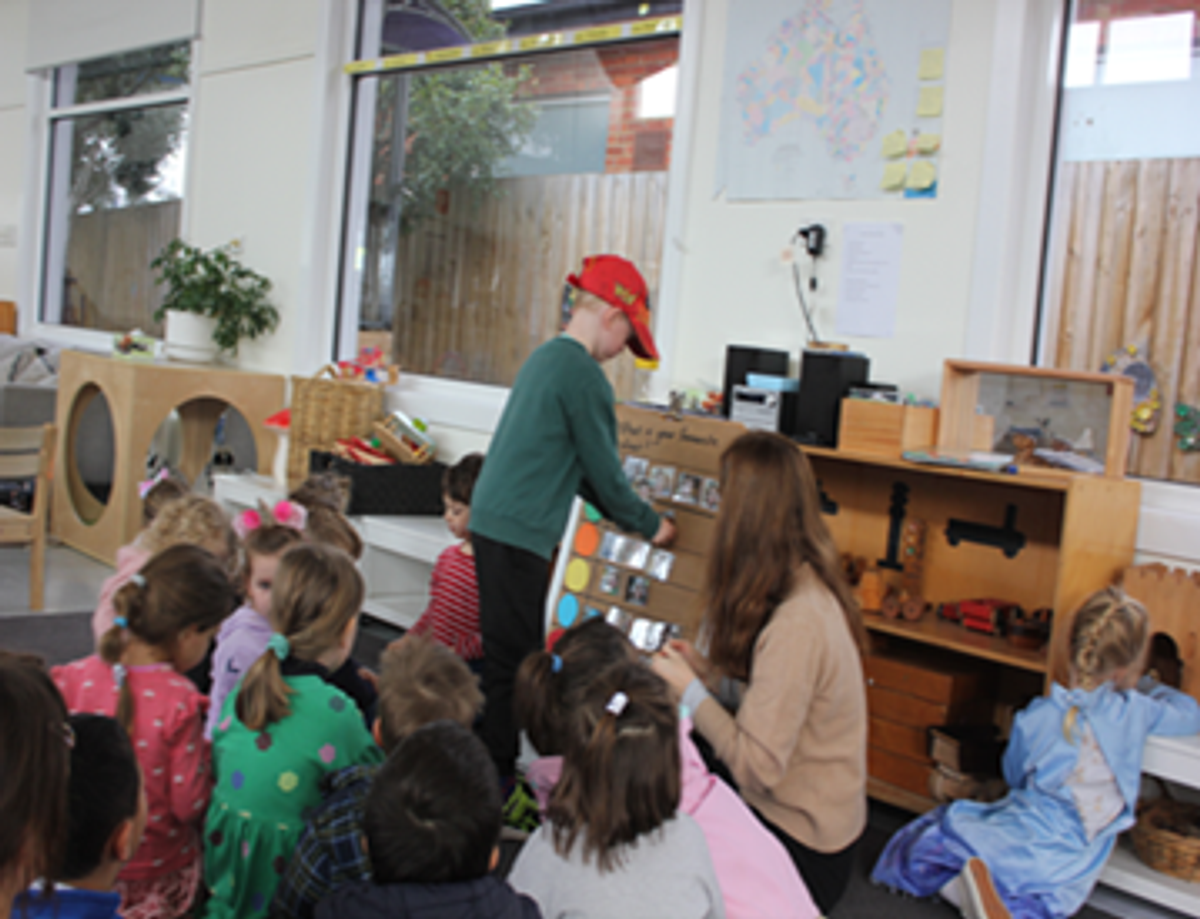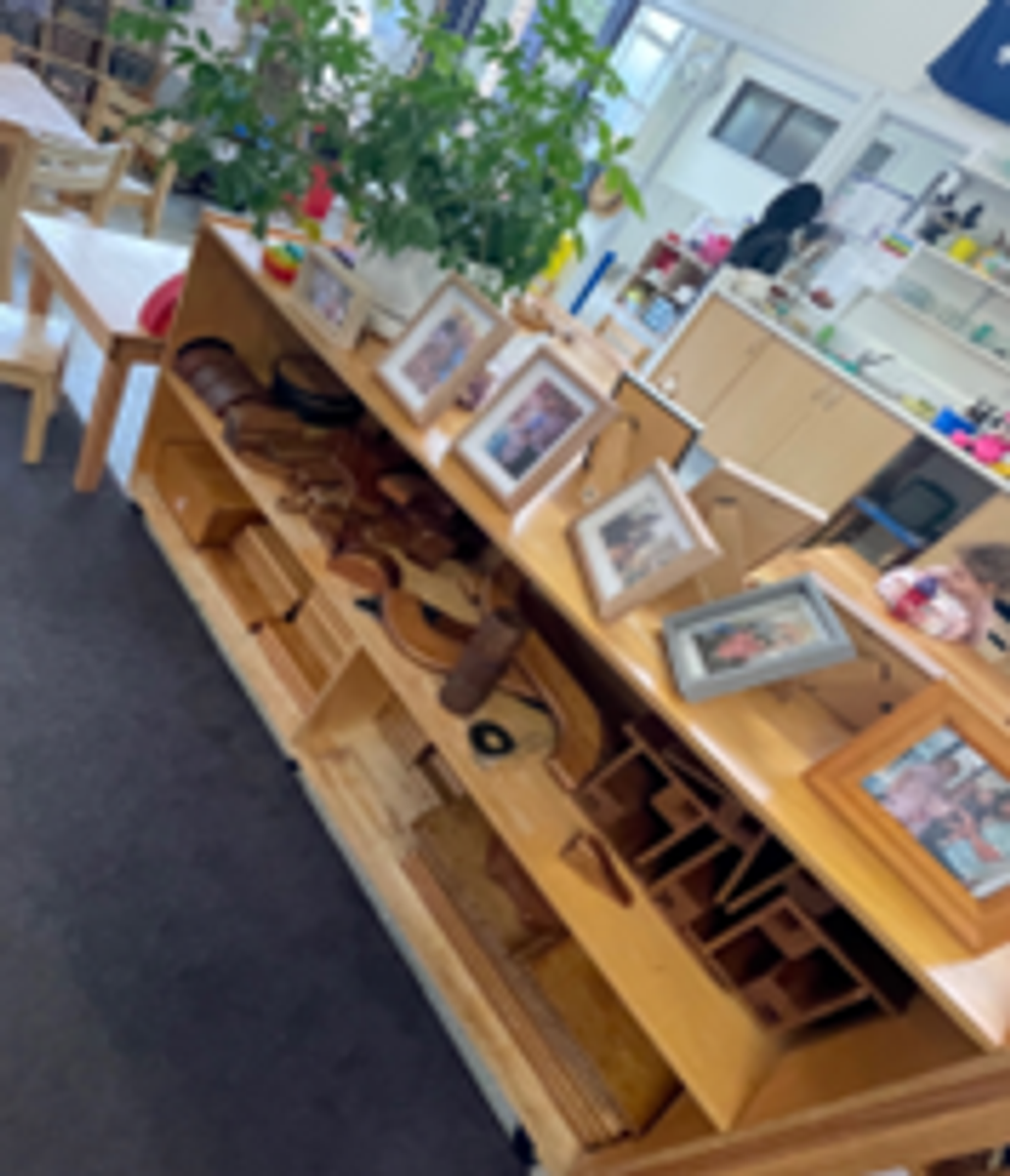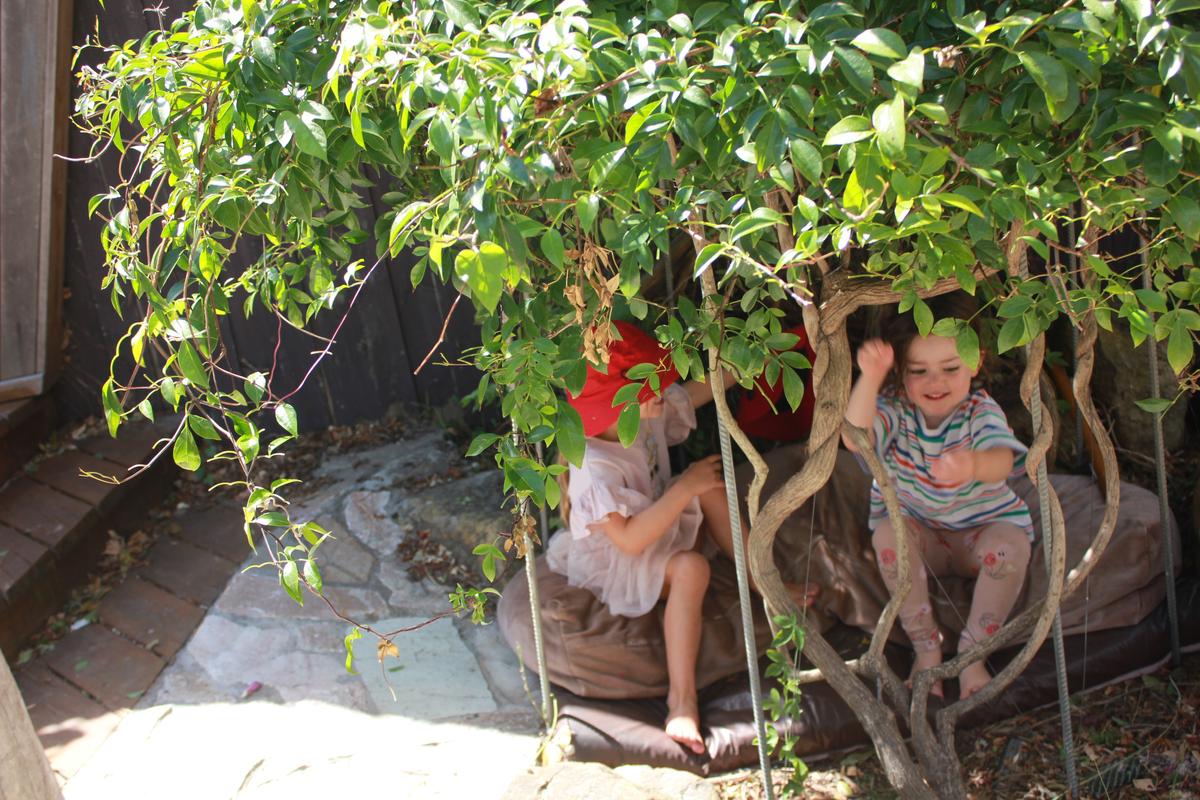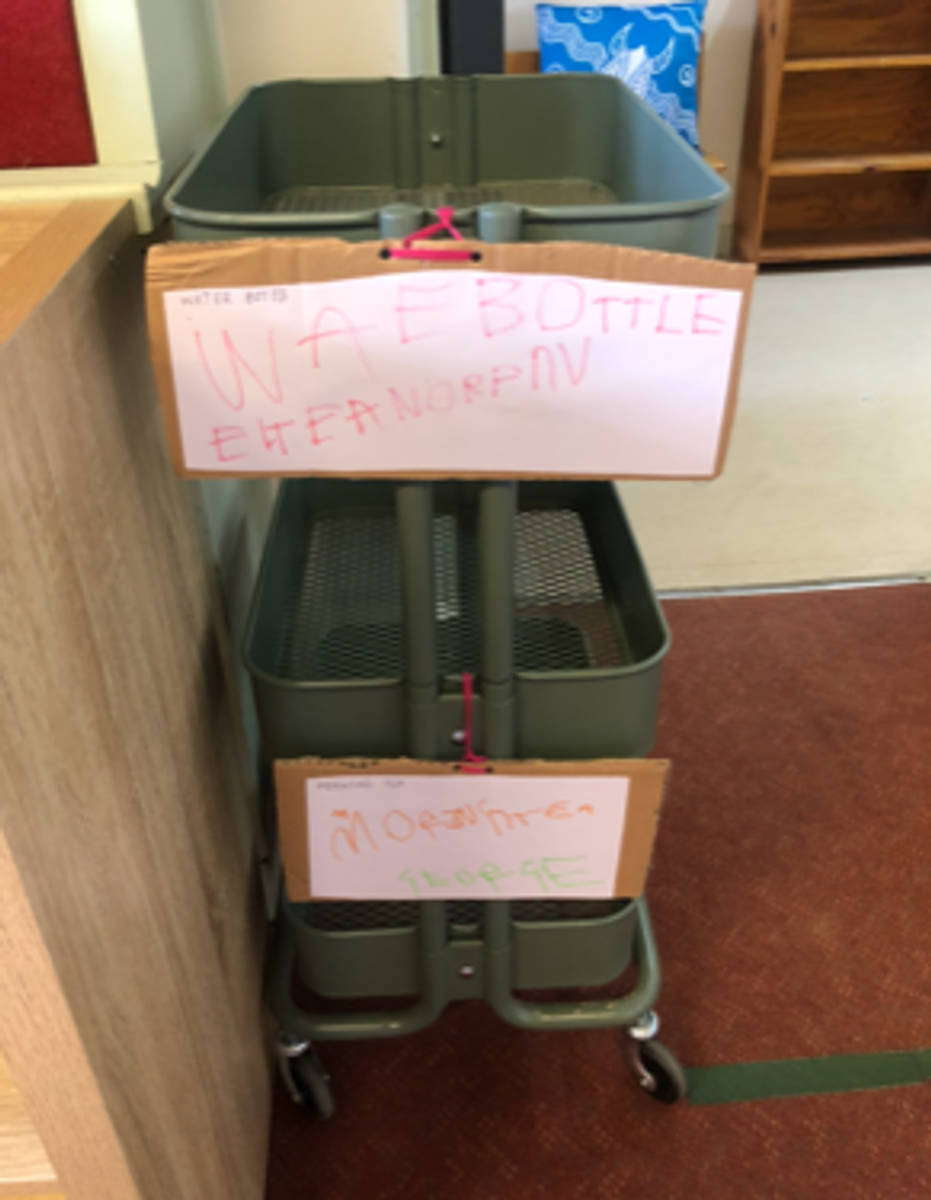Glen Education Caulfield South
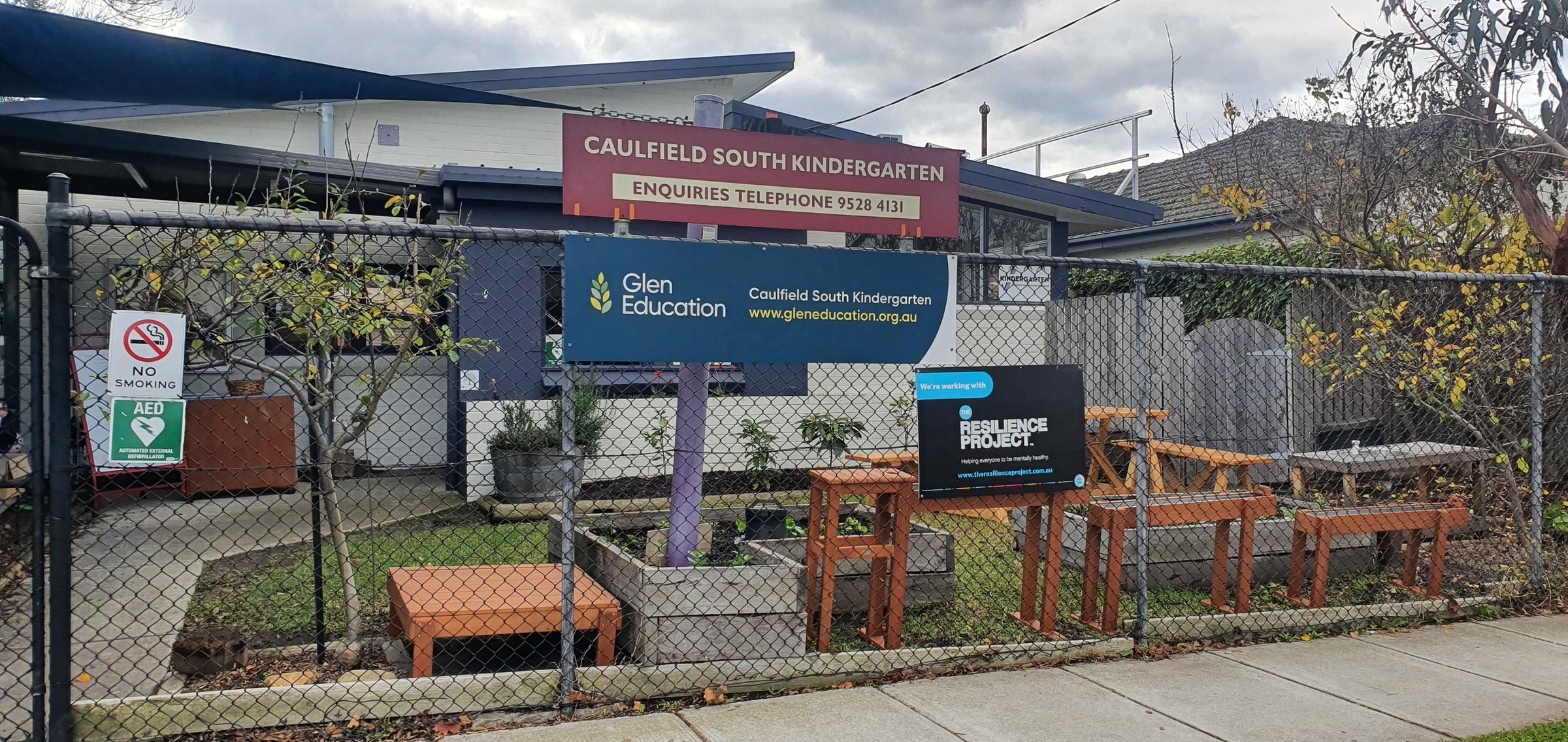
Inviting Curiosity and Wonder in Children's learning
Glen Caulfield South Kindergarten Educators
Quality Area 1: Educational program and practice
Each child is valued for the contributions they make to their own learning and the learning of the group. Educators focus on what the children are learning rather than what the children are doing. Each child’s voice is valued in this process, and listened to, to inform and guide educators’ decisions as to how they can support and extend learning.
For example, educators had noticed some comments from children that reflected some gender stereotyping with reference to pink being a girl’s colour, and blue being a boy’s colour. The educator was then able to open an important discussion with the group regarding biases around gender. The educator intentionally challenged the children’s thinking by posing the question whether they thought it would be fair to be limited in what they liked based on whether they were a boy of girl. The children were then able to contribute to discussion sharing examples of breaking down traditional ideas of gender. Examples from the children included boys wearing nail polish, some girls having short hair and some boys having long hair and boys having pierced ears. We then discussed colours and decided that colours are for everyone.
The educator then created a tally for children to add their photo to their favourite colour. This added a maths learning element to the experience.
- Claire McIver , Early Childhood Teacher
Quality Area 1: Educational program and practice
One of the things we are proud of is our Family Tree. It is a visual representation of how our community looks, as it includes each child’s family and is situated at the entry to our kindergarten room. Many conversations between children, educators and families occur at this focal point in our room, building strong connections and relationships with one another. This year we have also included many of the children’s family photos in picture frames around the room. These are a direct way to bring the connections from home into the kindergarten space and we have observed them being moved, held and re grouped each day by the children.
- Akiko Kudo, Early Childhood Educator
Quality Area 3: Physical environment
Small group play is an important factor in supporting children to engage in social skill development and engage them in exploring their curiosities and wonders together. Children participate in small groups in our garden space, helping to plant the plants and observing the growth over time. Children take the responsibility for caring for the plants, watering, weeding (under supervision) and harvesting. The space is also used for children to explore scientific learning, using magnifying glasses, recording materials with paper on clipboards and reading nonfiction books relating to nature and the environment.
Out outdoor space in the back garden also provides a shaded area for small groups to come together. Small group play can support children to engage in purposeful play, where children feel confident to listen and respond to ideas from peers. Construction on a mat in this space allows the smaller group to spend time either building together or in parallel play.
In both the indoor and outdoor learning environments, there are smaller spaces for 2-3 children to take a step away from the busyness of the social environment. These areas are very well used throughout the day, and the children gain a sense of independence and ownership of space. Educators view this as an important opportunity for all children. Sometimes educators will help children gather resources such as sheets and blankets to extend these spaces in the play area. Another advantage of these spaces is for children to have a restful place to be, enhancing their sense of wellbeing.
- Liz Harrison, Early Childhood Educator
Quality Area 4: Staffing arrangements
Our educational teams are involved in ongoing professional development workshops to build on current understandings, knowledge, and educational approaches. This involves discussion and critical reflection, with the Educational Leader and with each other. New ideas and strategies are always at the core of our ongoing practice at Glen Caulfield South Kindergarten.
Last year during Term 1, our teaching team and the teaching team from Glen Education Caulfield Primary Kindergarten visited each other’s services to learn from each other and gain inspiration from how each service presents the physical space. It was an opportunity to share conversations about our teaching practices and how each team work together to provide children with a learning space that is reflective of their individual learning and development needs.
An unexpected outcome of the visits has been the ongoing relationships that we had formed. Both teams were keen to share their contact details and offered support to each other in an ongoing basis. Given the close proximity of both services, this connection and mutual support has been invaluable as it has broadened our connections with other colleagues in the organisation.
- Kaye McCallum, Early Childhood Teacher
Quality Area 5: Relationships with children
At group transition times children are usually asked if they need 5 more minutes or 10 more minutes before packing up time or group time begins. Transition warnings give children agency and create a collaborative learning environment to help children feel supported and secure.
Discussions are regularly had with the children throughout the day in small and large groups reflecting on children’s input for learning activities to enable a child led focus to optimise their engagement. Discussions with children around being fair, safe, and kind are embedded into daily practice to encourage clear expectations around positive behaviours and help build positive relationships with each child.
- Lara Bodsworth, Early Childhood Educator
Quality Area 6: Collaborative partnerships with families
We encourage family engagement by inviting family members (immediate and extended) to attend the service to share their knowledge and experiences with the children. This has ranged from sharing about their job or a specific skill such as cooking, to simply popping in to read with a small group of children or sit down and play.
We invite families to bring in a piece of fruit to share with the group, we are lucky to receive plenty of fruit each week and the children are free to request a piece of fruit and often enjoy sharing some together throughout their day. The children gather around as the fruit is cut up – developing their numeracy skills as we count how many pieces have been cut and distribute to our friends. This has been a lovely way of supporting the children to take responsibility for their own physical wellbeing as they may try a piece of fruit they have not had previously and understand how it is a healthy food choice. The scraps are then fed to the worms in the compost bin located within our vegetable garden where the children love planting and harvesting fruit and vegetables.
- Junko Mackowiak, Early Childhood Teacher

